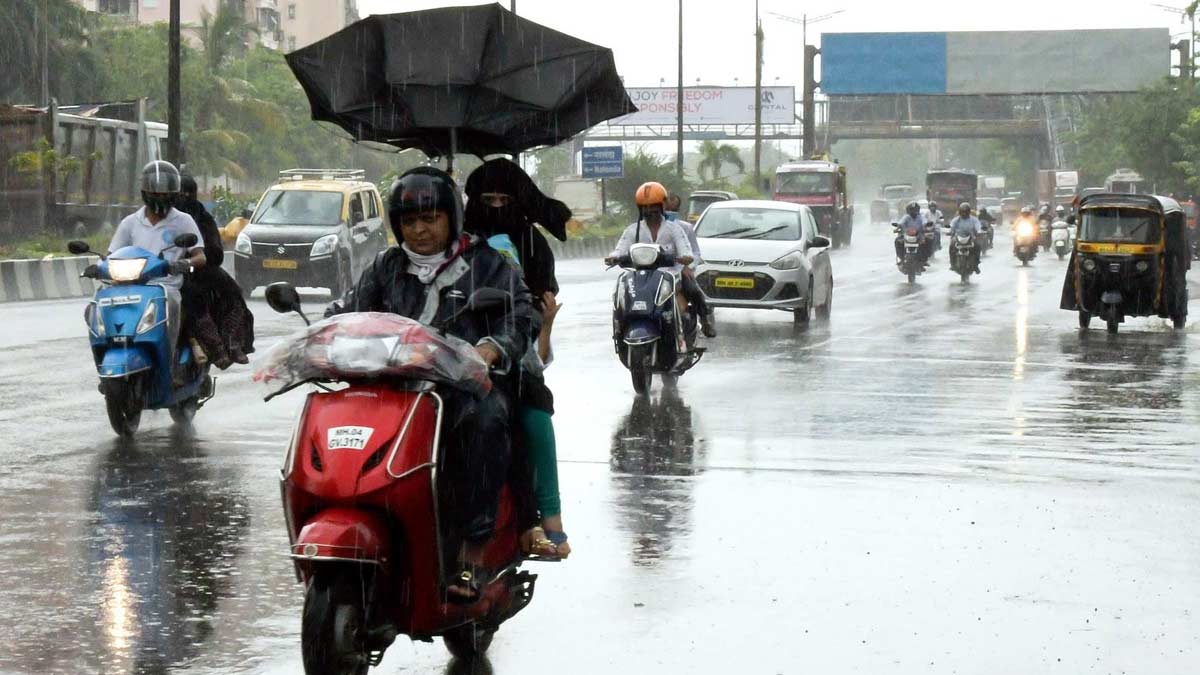
As the monsoon rains persistently drench Mumbai, the city is witnessing a significant rise in various monsoon-related diseases. Over the past two weeks, the Brihanmumbai Municipal Corporation (BMC) has reported alarming statistics: 694 cases of gastroenteritis, 166 cases of dengue, 282 cases of malaria, and 53 cases of swine flu. This surge in diseases has placed a tremendous burden on the city's healthcare system, necessitating swift and comprehensive action from both authorities and citizens.
Table of Content:-
Increased Healthcare Provisions to Combat Disease Outbreaks
In response to the outbreak, the BMC has significantly ramped up its healthcare facilities. A total of 3,000 beds have been allocated across major and suburban hospitals to accommodate the growing number of patients. Additionally, the Outpatient Department (OPD) services have been extended to operate from 4 pm to 6 pm, ensuring that more patients receive timely medical attention.
Public Awareness Campaigns: A Key Strategy
Recognizing the critical role of public awareness in disease prevention, the BMC has launched an extensive awareness campaign. The campaign includes a short film titled 'Bhaag Makhar Bhaag', featuring prominent Marathi and Hindi film industry actors. This film aims to educate the public on the importance of mosquito prevention measures, particularly to curb the spread of dengue and malaria. The film emphasizes simple yet effective steps that citizens can take, such as eliminating standing water and using mosquito repellents.

Aggressive Measures Against Rodent-Borne Diseases
The BMC has also intensified its efforts to combat rodent-borne diseases like plague and leptospirosis. In a remarkable feat, the municipality has exterminated approximately 239,527 rats in recent operations, with 13,255 rats eliminated in the last two weeks alone. These efforts are part of a broader initiative by the Pesticides Department to control the rodent population and prevent the spread of diseases.
Also Read: Maharashtra Reports Highest Ever 28 Cases Of Zika Virus This Year
The Rodent Control Initiative
The BMC's rodent control program is informed by startling statistics about rodent reproduction. A pair of mice can potentially produce up to 15,000 offspring in a year, as female mice typically give birth to 5-14 pups approximately every three weeks. These pups become fertile within five weeks, perpetuating a rapid cycle of reproduction. To mitigate this, the municipality is actively engaging in "mouse control" activities aimed at reducing the rodent population and preventing the diseases they spread.
Community Involvement and Precautionary Measures
Community involvement is essential in combating the surge of diseases. The BMC has issued several guidelines for citizens to follow in their daily lives to reduce disease transmission. Key recommendations include maintaining cleanliness in homes and surroundings, avoiding the consumption of street food, drinking boiled water, and practicing regular handwashing. Additionally, citizens are urged to avoid crowded places, use masks, and cover their noses and mouths when sneezing or coughing to prevent respiratory infections.
Healthcare Advisory
The BMC has also provided crucial advice regarding medication. Citizens are strongly advised against self-medication and are encouraged to seek professional medical advice if they feel unwell. Municipal clinics are available for consultations, ensuring that individuals receive proper care and treatment.
The Path Ahead
With the monsoon season far from over, the BMC's efforts to curb the spread of diseases continue unabated. The municipality's proactive measures, combined with public cooperation, are critical in controlling the outbreak. By adhering to the recommended precautions and supporting the BMC's initiatives, citizens can play a vital role in safeguarding their health and well-being during this challenging period.
Also Read: Maharashtra Reports 3,736 Dengue Cases Till July, Along With Chikungunya Cases Doubling In Numbers
Bottomline
In conclusion, Mumbai's battle against monsoon-related diseases is a collective effort requiring vigilance and cooperation from all sectors of society. The BMC's comprehensive strategies, from enhancing healthcare facilities to launching public awareness campaigns and controlling the rodent population, demonstrate a robust response to the crisis. However, the success of these measures ultimately hinges on the active participation and adherence to guidelines by the city's residents. Together, Mumbai can navigate through this monsoon season with resilience and health-conscious actions.
Also watch this video
How we keep this article up to date:
We work with experts and keep a close eye on the latest in health and wellness. Whenever there is a new research or helpful information, we update our articles with accurate and useful advice.
Current Version